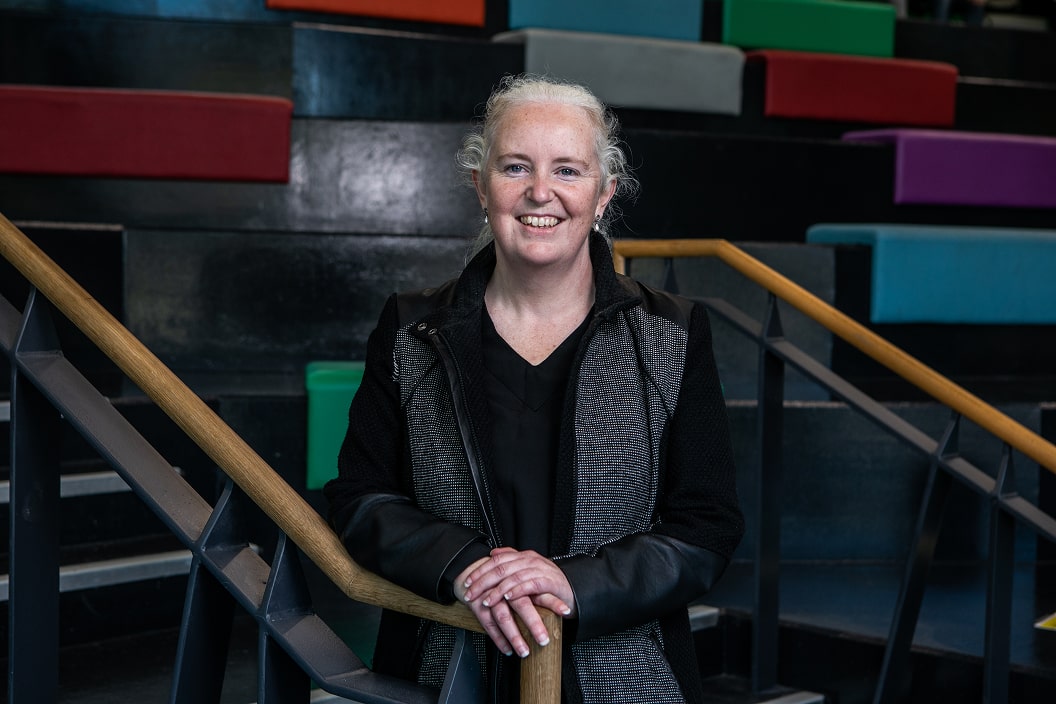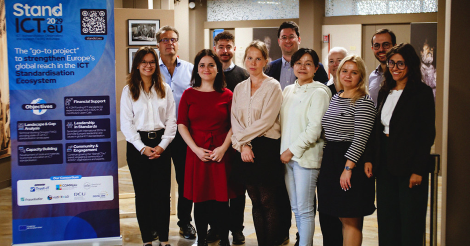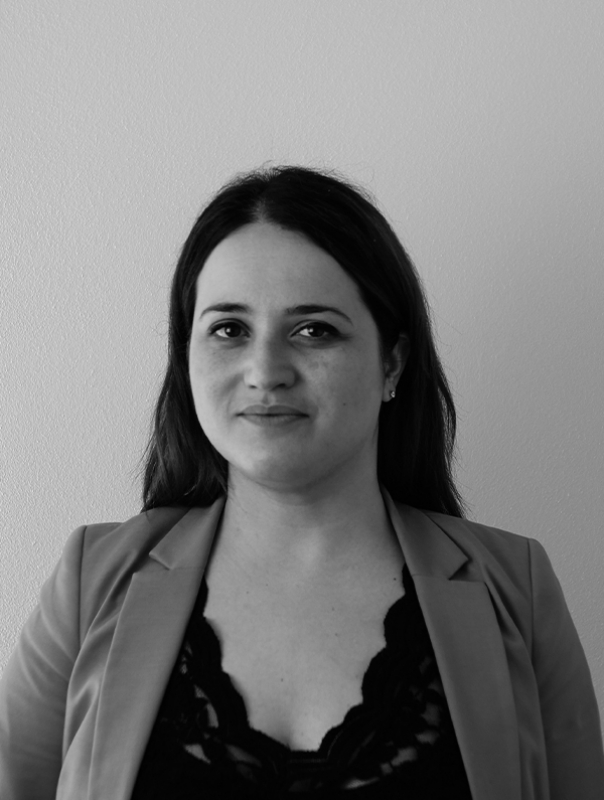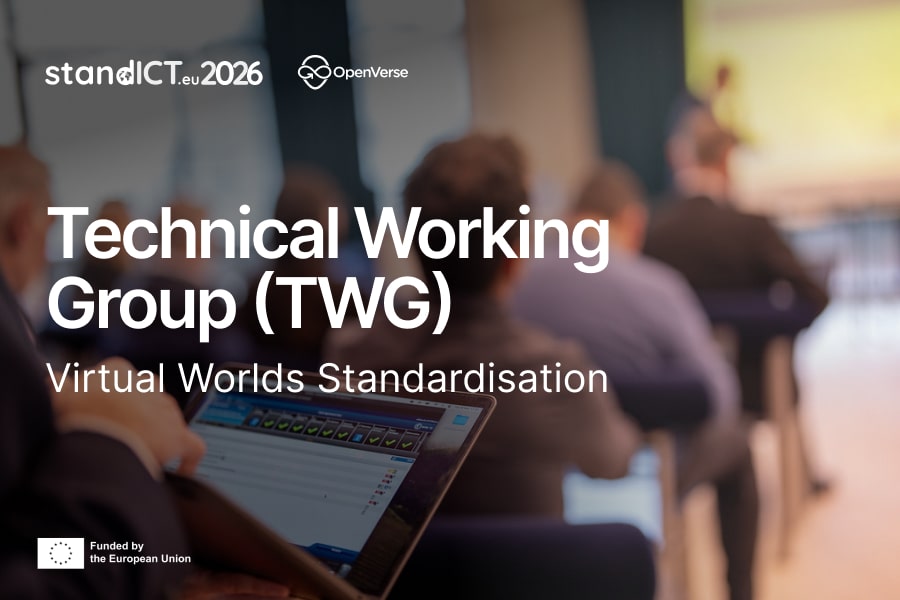Read time: 4 mins
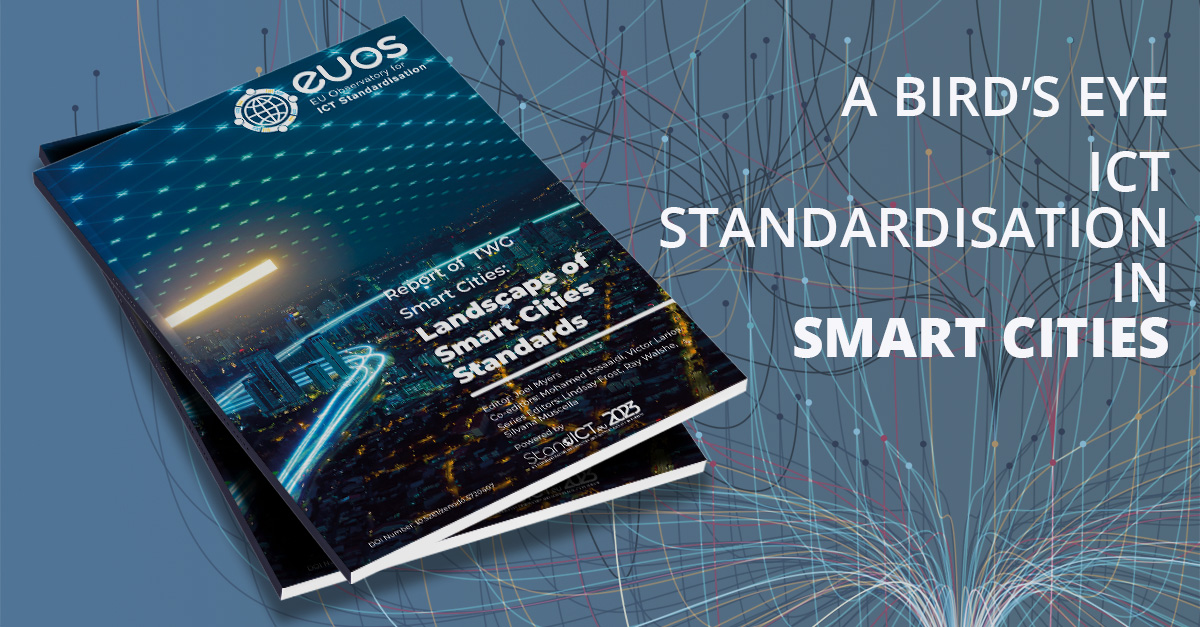
Brussels, 20th of December 2021
The EU-funded, StandICT.eu 2023 Project, ICT Standardisation Observatory and Support Facility in Europe, has just published the second of a series of Landscape Reports on ICT standards, Landscape of Smart Cities[1] a palpable, go-to reference, providing an overview of the diverse array of global standardisation work underway in Smart Cities and the various organisations behind it. This information will be continuously updated and evolve via the “EUOS – Observatory for ICT Standardisation” a database powered by StandICT.eu 2023 to cover the wide-range of topics identified in the Rolling Plan for ICT Standardisation and will ultimately result in the release of a dedicated Gaps Analysis Report for each theme.
Landscape of Smart Cities Standards is the fruit of the dedicated EUOS Technical Working Group (TWG Smart Cities) set-up to harness expert advice and stimulate discussion among SDOs, public bodies, academic institutions and acclaimed specialists to provide an expert overview of documents and relevant activities for the standardisation in this field. Ultimately, the EUOS TWG Smart Cities will pinpoint gaps where additional activity and investment can strengthen Europe’s position and also help to stay at the forefront of smart sustainable cities through the EU’s twin green and digital objectives in adopting a European approach to excellence in Smart Cities and Communities and the approach to introducing Green Deal innovations through these efforts.
We welcome the StandICT.eu Landscape report on Smart Cities which maps international standards efforts in this domain that can help the dedicated Technical Working Group comprising a group of selected and renowned experts that will describe an architecture framework model, data information models, context information management on a set of specifications based on open international standards and existing solutions. It will be developed in accordance to the architecture design principles of Minimum Interoperability Mechanisms (MIMs) with a special interest in interoperability and how emerging new technologies can be articulated in this architecture from a city governance point of view.
Eddy Hartog, Head of unit C3 in Smart Cities & Communities, DG Connect European Commission
Max Lemke, Head of unit Internet of Things (IoT), DG Connect European Commission
The Report provides an encompassing compilation of standardisation efforts underway in the framework of European SDOs, such as CEN and ETSI, Government, Public Bodies and Agencies, such as the European Commission, the European Data Portal, European Parliament and the HLEG-AI and JRC, Global SDOs and initiatives, such as IEC, IEEE, ISO/IEC, ITU-T, WEF, W3C, as well as country-specific contributions including US, Sweden and Spain and relevant contributions from other global organisations (DATEX2, OECD, UNECE, UNESDOC, IMD, ICLEI).
Since its start, StandICT.eu 2023 has launched in EUOS 10 other such Technical Working Groups, 4 of them have been kicked-off after the publication of the first Landscape Report, in Blockchain (TWG BLOCK), Big Data Spaces and Data Interoperability (TWG BDDI), Cybersecurity (TWG Cyber), Artificial Intelligence (TWG AI), Trusted Information (TWG TRUSTI), Digital Twin (TWG Digital Twin), Cloud Edge and IoT(TWG CEI), Ontology (TWG Ontology), Big Data For Smart Cities (TWG Big Data For Smart Cities) and Standards Education (TWG ACADEMY) where further Landscape and Gap Analysis Reports will be published as part of the series.
In parallel, StandICT.eu 2023 is providing 3M EURO to fund European ICT experts through a series of (9) Open Calls to participate in international Standardisation Developing Organisations' working groups across the wide-range of topics identified in the EC Rolling Plan for ICT Standardisation..
From the Authors:
In a moment in time where the world has been hit by the COVID-19 pandemic and where the digital divide has widened considerably, we look to our cities for guaranteeing sustainability and resilience in how we live, work and access education, facilitated through technology and data. There has never been a more important time for publishing a report on global standardization on Smart Cities. For the first time, representatives from many different SDOs, government, academic institutions, and industry have created an open-access database of specifications, reports, guidelines, databases, recommended practices, frameworks and landscapes for a particular theme (Smart Cities) in a way that encourages future extensions, re-use, cross-comparisons and re-classification according to disparate needs.
Joel Myers, Chair of the IEEE IoT Initiative on Smart Cities, EUOS TWG Smart Cities Chair, Editor
Digital Twin (DTw) technology has rapidly advanced to provide extremely high quality twins with boundless capabilities. With DTw market growth form €2.75 Billion to predicted €43 billion by 2026 now is the time to examine how your business can benefit from DTw.
Ray Walshe, StandICT.eu 2023 EAG Chair & EUOS Director, EUOS TWGs Coordinator, Series Editor
Dip into the Report [2] or join one of the Technical Working Groups to make your contribution!
Take the advantage from EUOS Discussions Groups Space to have an exchange with our Community, we have organised the discussions areas based on topics!
Apply to one of our Open Calls to fund your standardisation work!
For further information, please reach out at info@standICT.eu
[1] DOI: 10.5281/zenodo.5720406
[2] Link to Zenodo source
